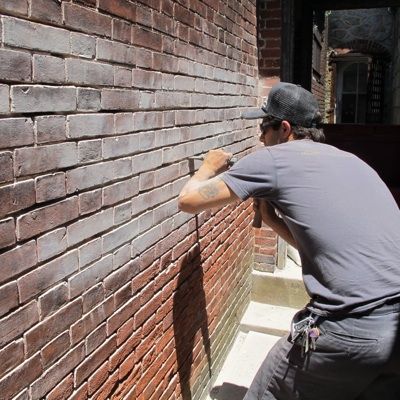Conquering Concrete: The Ultimate Guide to Concrete Drill Bits in the USA

Strong 8k brings an ultra-HD IPTV experience to your living room and your pocket.
When it comes to working with concrete, the right tools are essential. One of the most crucial elements for any drilling project is the concrete drill bit. Unlike standard drill bits designed for wood or metal, concrete drill bit are specifically engineered to tackle the unique challenges that concrete presents.
This comprehensive guide dives deep into everything you need to know about concrete drill bits in the USA. We'll explore the different types of concrete drill bits available, the factors to consider when choosing the right bit for your project, and best practices for drilling into concrete effectively.
Understanding Concrete: A Challenging Material
Concrete is a ubiquitous building material in the USA, prized for its durability, strength, and fire resistance. However, these very qualities that make concrete ideal for construction also make it a formidable opponent for drilling. Here's a closer look at the properties that make concrete so challenging to drill through:
Hardness: Concrete is a composite material consisting of coarse aggregate (gravel, crushed stone), cement paste, and fine aggregate (sand). The aggregate particles are incredibly hard, significantly exceeding the hardness of typical drill bit materials.
Brittleness: Despite its strength, concrete is brittle. It can crack or shatter under excessive pressure, especially when using the wrong drilling technique.
Abrasiveness: The rough texture of concrete can quickly wear down drill bits, particularly those not designed for concrete.
Types of Concrete Drill Bits: Choosing the Right Tool for the Job
With a variety of concrete drill bits available in the USA market, selecting the most suitable option can be overwhelming. Here's a breakdown of the most common types of concrete drill bits to help you make an informed decision:
Hammer Drill Bits: These are the go-to concrete drill bits for most drilling tasks in the USA. Hammer drill bits feature a fluted design for efficient debris removal and a carbide tip specifically engineered for drilling through hard materials like concrete. The hammer drill itself delivers a hammering action alongside the rotation, providing the necessary percussive force to break through concrete. Hammer drill bits come in various sizes, typically ranging from ¼ inch to 2 inches in diameter.
SDS Plus and SDS Max Drill Bits: These are specialized hammer drill bits designed for use with SDS Plus and SDS Max rotary hammers, two powerful hammer drill variants commonly used in construction applications. SDS Plus and SDS Max bits feature a shank design that locks securely into the hammer drill's chuck, ensuring a positive connection and maximum drilling efficiency. SDS Plus bits are ideal for mid-range drilling projects in concrete, while SDS Max bits are used for heavy-duty drilling applications.
Rotary Masonry Bits: These bits are designed for use with rotary drills that don' t have a hammering function. While not as effective for drilling through solid concrete as hammer drill bits, rotary masonry bits can be useful for drilling into softer materials like brick, mortar, or cinder block. They typically feature a carbide tip and a fluted design for debris removal.
Core Bits: Core bits are used for creating large-diameter holes in concrete, typically for applications like installing pipes, conduits, or electrical boxes. Core bits consist of a hollow cylindrical outer ring that cuts the concrete core and a center pilot bit that helps guide the core bit and provide stability. Core bits are used with rotary drills equipped with core drill stands for precise drilling.
Diamond Hole Saws: These are circular saw blades designed for cutting through concrete. Diamond hole saws feature a continuous rim embedded with diamonds, the hardest material known, allowing them to cut through concrete quickly and efficiently. Diamond hole saws are ideal for making large diameter holes or intricate cuts in concrete.
Factors to Consider When Choosing a Concrete Drill Bit
Once you've familiarized yourself with the different types of concrete drill bits available, it's crucial to consider several factors to ensure you select the right bit for your specific project:
Project Requirements: The primary factor influencing your choice is the type of project you're undertaking. Consider the diameter and depth of the holes you need to drill. Will you be drilling through solid concrete, or are you working with softer materials like brick or cinder block?
Drill Type: Match the drill bit to the type of drill you'll be using. Hammer drill bits are necessary for hammer drills, while rotary masonry bits are suitable for rotary drills without a hammering function.
Note: IndiBlogHub features both user-submitted and editorial content. We do not verify third-party contributions. Read our Disclaimer and Privacy Policyfor details.


